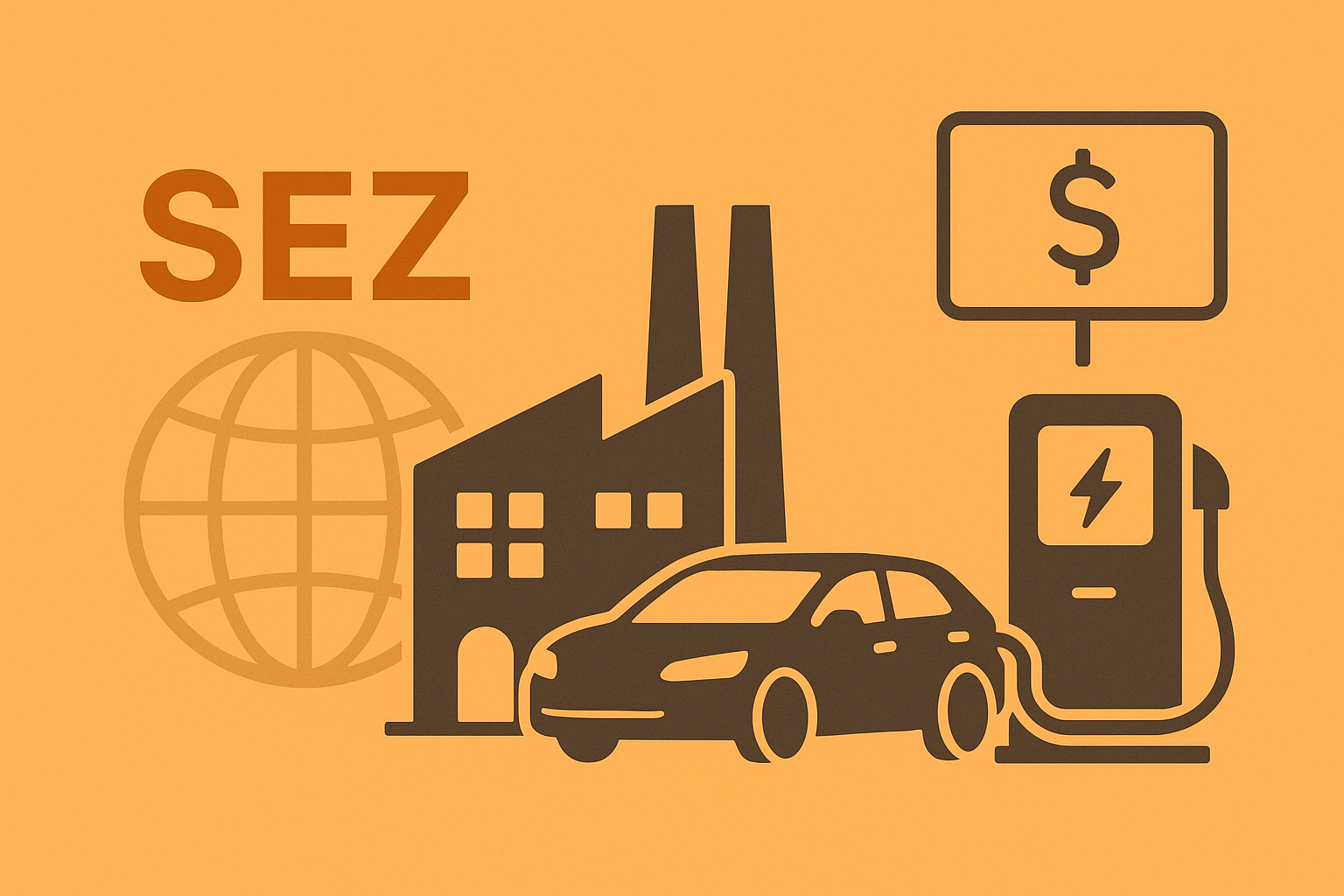SEZ (Special Economic Zone)

What is SEZ?
A Special Economic Zone (SEZ) is a designated area within a country that is subject to different economic regulations than the rest of the country. These zones are created to encourage foreign investment and promote industrial development. In the context of EVs, SEZs are often used to establish manufacturing plants for electric vehicles, batteries, and charging infrastructure. SEZs provide favorable conditions such as tax exemptions, reduced customs duties, and other incentives that make it easier for businesses to invest in clean mobility solutions.
Why SEZ Matters
SEZs are crucial for attracting investment in the electric vehicle industry, which is capital-intensive and requires specialized infrastructure. By offering tax breaks, reduced duties, and easier regulatory processes, SEZs lower the cost of establishing EV manufacturing plants and charging infrastructure. For EV adoption to scale, it is essential to have a robust supply chain for vehicle production and battery manufacturing, and SEZs help support this by offering businesses the right conditions to thrive.
How it Works
SEZs offer businesses specific advantages over regular industrial zones. Companies operating in SEZs typically enjoy benefits such as tax incentives, reduced tariffs on imports, and less stringent labor laws. For EV manufacturers, this means lower production costs and faster time-to-market for electric vehicles and charging stations. Additionally, SEZs may offer infrastructure like roads, utilities, and communication networks, which help further reduce operational costs.
Key Technologies / Features
- Tax Exemptions: SEZs offer tax breaks or reduced tax rates to encourage businesses to set up operations in these zones.
- Customs Duty Reductions: SEZs often provide exemptions or reductions on customs duties for imported raw materials, which benefits industries like EV manufacturing.
- Infrastructure Support: SEZs provide ready-made infrastructure such as power, water, and roads to make it easier for businesses to operate.
- Export-Orientation: Many SEZs are designed to facilitate the production and export of goods, making them ideal for scaling EV manufacturing operations.
Applications
- EV Manufacturing: Companies like Tata Motors and Mahindra Electric set up manufacturing plants in SEZs to take advantage of tax breaks and incentives.
- Battery Manufacturing: Battery manufacturing plants for electric vehicles are often located in SEZs to reduce production costs.
- Charging Infrastructure: Charging station manufacturers may set up in SEZs to benefit from reduced costs for materials and import duties.
- Research and Development: Some SEZs are designed to foster innovation, and companies can set up R&D centers for developing new electric vehicle technologies.
Benefits
SEZs provide businesses with a more favorable environment to invest in the electric vehicle and clean energy sectors. These zones help reduce operational costs, attract foreign investment, and speed up the development of EV infrastructure. By lowering production costs and facilitating faster market entry, SEZs help support the growth of electric mobility, contributing to sustainability goals.
Use Cases
SEZs in India, such as those in Pune and Chennai, are key locations for EV manufacturing, with major automakers establishing plants in these zones. In China, SEZs have been instrumental in the growth of the EV industry, providing favorable conditions for companies like BYD and NIO to develop electric vehicles.




